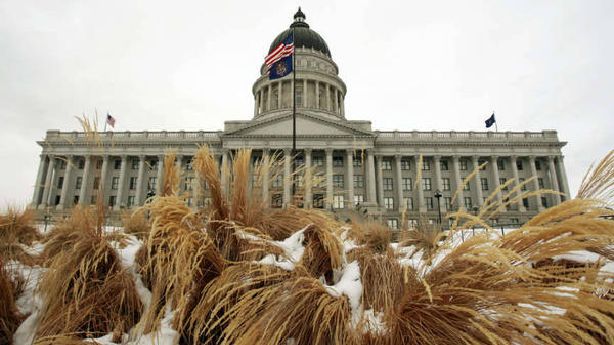Government Operations Interim Committee – June 21
Review of Boards and Commissions with Legislative Participation
To help make policy, the Legislature depends heavily on boards and commissions. These entities cover a variety of issues and policy areas, such as healthcare on the Health Reform Task Force, public lands on the Commission for the Stewardship of Public Lands, and marriage on the Utah Marriage Commission. These entities are also composed of a variety of experts and policymakers who help study these issues and then either recommend, determine, or implement policy.
This Interim Session, the Government Operations Interim Committee is reviewing those boards and commissions that under statute have legislative participation. This means that the board membership contains some legislative members or is exclusively made up of legislators. You can see a list of all these boards and commissions here.
This review will determine whether or not these boards should continue to exist or whether legislative participation is still needed. And it became pretty clear very fast that certain legislators would be very protective of the boards and commissions they were attached to.
Sen. Margaret Dayton immediately recommended that the Water Development Commission be moved from the list of those boards marked for “further review.” She claimed these commission meetings are always very well attended by the public and the commission members develop good legislation. Although, comments like these would be expected from the one who chairs that commission and during a committee meeting during the General Session was referred to as the “Empress of Water.”
Rep. Ken Ivory wanted to save three commissions: the Commission for Stewardship of Public Lands, the Constitutional Defense Council, and the Commission on Federalism. Seeing as how Ivory is the chair of the Federalism Commission, a member of the Public Lands Commission, and does not pass any opportunity to rail against the federal government, it did not surprise us that he jumped at the opportunity to save these. Sen. Jim Dabakis did push back against saving the Public Lands Commission, saying they developed the expensive $14 million public lands lawsuit and then wouldn’t even share the legal strategy with all members of the commission.
However, the discussion on these boards and commissions is only beginning. Staff was instructed to make a list of those that would be saved and those that would receive further review based on the number of times they met over the past three years. So, we’ll see in the future what happens.
Presentations by Lt. Gov’s Office
After a short presentation from Rep. Patrice Arent and former state senator Scott Howell on a bill that would allow replacement of municipal candidates during election vacancies, the Lt. Gov’s office made a few presentations on issues that needed to be updated in code.
The most significant discussion surrounded inconsistencies in the state’s campaign finance laws. For example, why are various entities treated differently when it comes to reporting thresholds for their political contributions and expenditures? What should a Political Issue Committee (PIC) do with leftover funds when it dissolves? Why is the reporting fine for a county party larger than some county party’s operating budgets? It was an interesting discussion involving transparency when it comes to our state’s elections.
The other interesting discussion was on the laws regulating poll watchers which have not changed for 20 years even though elections have changed significantly during that same period. The code currently allows for three types of poll watchers: voting, counting, and inspecting. While voting poll watchers used to be present at every precinct to make sure there were no voting irregularities, that job is now made more difficult because of vote by mail and the fact that people no longer have to vote in their precinct but can now go to voting centers. Counting poll watchers monitor counting until the close of polls, but counting takes place throughout the canvas long after the polls are closed. And the job of poll watchers inspecting the transportation of ballots is now made more difficult as more and more ballots arrive in the mail. It will be interesting to see how legislators tackle these various issues.

